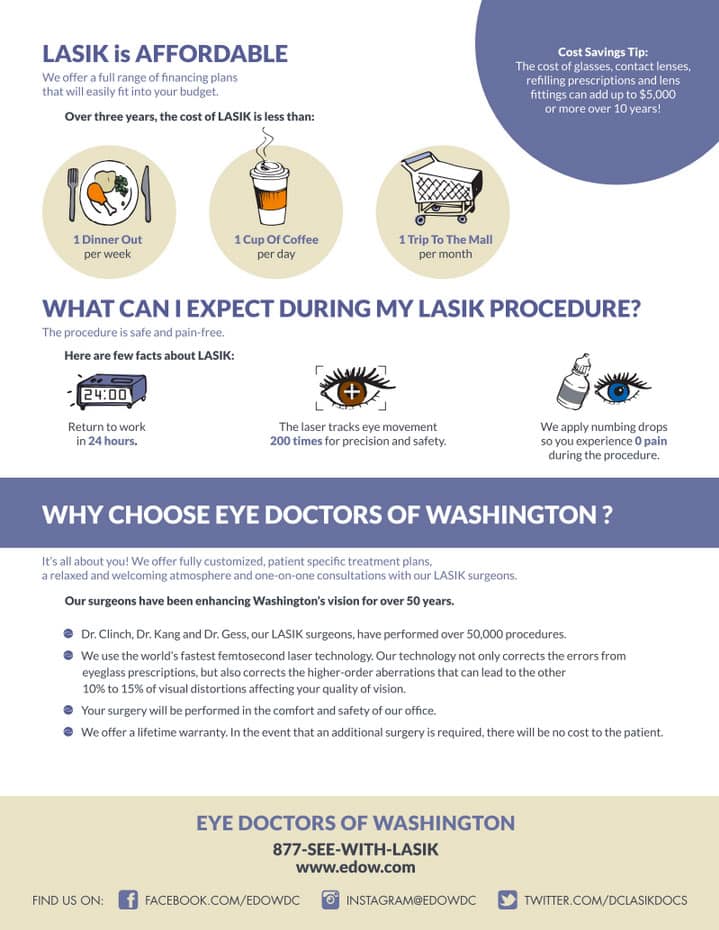As a cataract specialist, your day starts with a comprehensive eye assessment, where you assess patients' vision and lens clearness. You recognize how vital it is to recognize cataracts accurately. Once detected, you get ready for surgery, ensuring every information is made up. But https://josuemhcwr.blogpayz.com/36430704/undoubtedly-cataract-surgical-treatment-has-the-possible-to-boost-your-vision-nevertheless-it-is-essential-to-comprehend-the-treatment-and-what-to-expect-for-a-beneficial-outcome doesn't end there. The genuine trip unravels in the operating room, where accuracy is crucial. What occurs next might define an individual's aesthetic future.
The Diagnostic Process: Identifying Cataracts
When it involves identifying cataracts, clarity is key. You'll start with an extensive eye exam, where you'll analyze visual acuity and check for any indicators of cloudiness in the lens.
During this process, you'll utilize specialized devices, such as a slit light, to get an in-depth view of the eye's structure. You'll likewise carry out a dilated eye exam to review the lens and retina better.
Collecting your person's case history is crucial, as it aids identify danger variables like age, diabetes mellitus, or previous eye injuries.
After examining the results, you'll identify the presence and extent of cataracts. This thorough method ensures you give the best recommendations for treatment, setting the stage for the following action in their treatment.
The Surgery: Precision in Action
After detecting cataracts and talking about therapy alternatives, you get ready for the operation, where accuracy is critical.
You enter the operating room, putting on sterile handwear covers and a mask. The patient relaxes pleasantly under brilliant lights, ready for the makeover.
You begin by providing regional anesthesia, guaranteeing they feel no discomfort. With a constant hand, you make a little laceration in the cornea, utilizing advanced strategies to eliminate the over cast lens.
https://pros-and-cons-of-monovisi85162.loginblogin.com/43970487/when-is-the-correct-time-to-have-cataract-surgical-procedure insert the artificial intraocular lens, straightening it perfectly for optimum vision. Throughout the procedure, you check vitals and readjust as needed, keeping concentrate on the task.
In just a short time, you'll have restored your client's sight, a pleasing outcome for both of you.
Post-Operative Care: Ensuring Optimum Recuperation
When the surgery is complete, your role changes to guaranteeing the person's smooth healing.
You'll begin by giving clear post-operative directions, stressing the significance of putting on the eye guard and taking prescribed drugs. Remind them to stay clear of scrubing their eyes and taking part in difficult tasks.
Set up a follow-up visit within a few days to monitor recovery and attend to any problems. Urge individuals to report any type of indicators of infection, such as increased inflammation or discharge.
Additionally, review Contact Lens Cost of using synthetic rips to ease dryness. Support their psychological well-being by guaranteeing them that aesthetic enhancements may require time.
Conclusion
In a cataract specialist's day, you witness the trip from diagnosis to healing. You see the precision in surgical treatment and the care taken post-operation to ensure your ideal recovery. Via this experience, you gain clearness not just in vision, yet in recognizing the whole process. The depend on developed in between you and your surgeon is critical, paving the way for a smoother recovery. With the right support, you get on your means to appreciating a brighter, more clear world.
